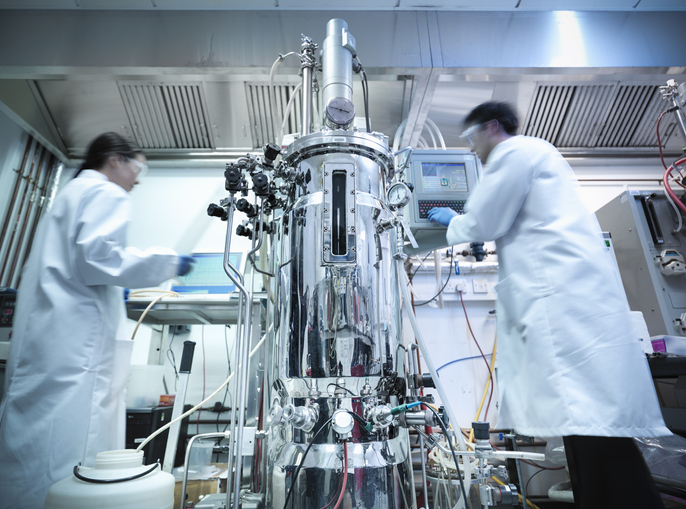An intensified viral vector production method and the creation of “surrogate” antibody drug conjugates (ADCs) for process development and training initiatives are among the projects selected for support by National Institute for Innovation in Manufacturing Biopharmaceuticals (NIIMBL).
NIIMBL announced its latest funding round this month, unveiling eight technology programs and two developmental training initiatives it will support.
Associate NIIMBL director, Chris Roberts, predicted: “These collaborative projects will bring significant value to the biopharmaceutical industry in the key areas of intensified processing for monoclonal antibodies, viral vectors, and cell therapy, along with measurements of critical quality attributes.”
Downstream
One of the projects will see tech developer ChromaTan integrate its column-free moving bed continuous chromatography platform into Dutch partner Batavia Biosciences’ adeno-associated viral vector (AVV) production system.
A Batavia spokesperson told GEN: “ChromaTan’s novel technology—BioRMB—allows us to increase our processing throughput, increase our recoveries during purification of AAV, while reducing expensive materials of static columns, such as large amounts of resins.
“The BioRMB platform performs chromatography without the use of columns which enables higher recovery and up to 90% reduction in resin volume. Both of these features can significantly reduce the cost of goods.”
“It is widely known that COGS for AAV manufacturing are extremely high. Integrating Batavia’s intensified HIPvax production platform with ChromaTan’s novel downstream technology, we aim to show that we will get higher AAV production yields in HIPvax, higher recovery with BioRMB, with less consumables through both technologies combined. Next to the anticipated lower COGs, this will also have a beneficial environmental impact,” the spokesperson said.
The firms aim to have the proof of concept established at manufacturing scale at the end of the NIIMBL program.
The ChromaTan-Batavia collaboration is not the only downstream project included in NIIMBL’s funding round. Enquyst Technologies and partners Lonza, MilliporeSigma, and the University of Massachusetts Lowell received backing to develop a technique called isoelectric point purification (IPP) for continuous mAb production processes.
Another project will see researchers at Rutgers University develop process analytical technology (PAT) workflows to monitor biological drug critical quality attributes (CQAs).
The research will involve laboratory instrument firm Agilent, automation supplier Endress + Hauser Optical Analysis, contractor EnZene Biosciences as well as MilliporeSigma and Pfizer.
Pfizer is also working on another of the projects selected by NIIMBL. The U.S. drug maker has partnered with researchers at Pittsburgh’s Carnegie Mellon University and the Rensselaer Polytechnic Institute to develop a set of so-called “surrogate ADCs” (sADCs).
Similarly to how dummy viruses are used in clearance studies, sADCs are envisaged as means of assessing “the diversity and processing behaviors of first-generation and second-generation ADCs without the associated toxicity.”
Training programs
NIIMBL’s mission is to accelerate biopharmaceutical innovation, support development of manufacturing standards, and boost workforce skills.
To that end, two training initiatives are also included on the list of funding recipients. Santa Clara University—and partners Biocom California, Genentech, and Merck & Co—will receive backing to create a data analytics program for engineers.
Similarly, NIIMBL will help Texas A&M University, Janssen, Pfizer, and the University of California, Los Angeles, develop a course designed to “equip, train, support, and retain neurodivergent talent for the biomanufacturing industry.”


